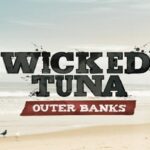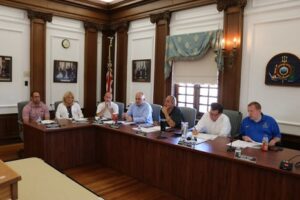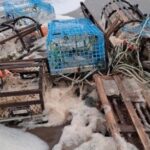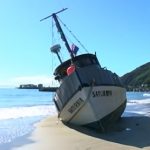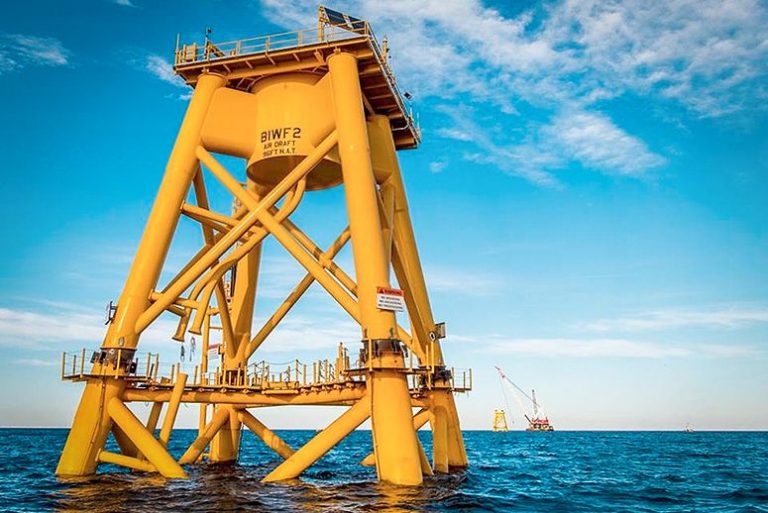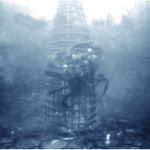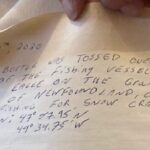Daily Archives: April 11, 2017
Good Lord. Pacific Fishery Management Council Closes 200 Miles Of West Coast To Salmon Fishing
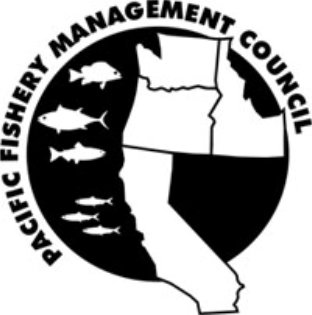 About 200 miles of the West Coast will be closed to ocean salmon fishing this year to protect a record-low run of Klamath River chinook. Fishery managers with the Pacific Fishery Management Council voted Tuesday for a total closure of ocean salmon seasons from southern Oregon to northern California. Commercial troll fishing seasons will be closed from Florence, Oregon, to Horse Mountain, which is south of Eureka, California. Sport fishing seasons will be closed from Humbug Mountain south of Port Orford, Oregon, to Horse Mountain in northern California. The rest of the coast will have limited fishing seasons. West Coast salmon runs have been hit hard in recent years by drought conditions in their native rivers and El Niño conditions in the Pacific Ocean that reduce their food sources. While fishermen up and down the coast are in for a tough year, those who depend on Klamath River salmon are already calling for help. Fishing groups and Native American tribes plan to ask California Gov. Jerry Brown to declare a fishing disaster so they can receive federal assistance. click here to read the story 18:03
About 200 miles of the West Coast will be closed to ocean salmon fishing this year to protect a record-low run of Klamath River chinook. Fishery managers with the Pacific Fishery Management Council voted Tuesday for a total closure of ocean salmon seasons from southern Oregon to northern California. Commercial troll fishing seasons will be closed from Florence, Oregon, to Horse Mountain, which is south of Eureka, California. Sport fishing seasons will be closed from Humbug Mountain south of Port Orford, Oregon, to Horse Mountain in northern California. The rest of the coast will have limited fishing seasons. West Coast salmon runs have been hit hard in recent years by drought conditions in their native rivers and El Niño conditions in the Pacific Ocean that reduce their food sources. While fishermen up and down the coast are in for a tough year, those who depend on Klamath River salmon are already calling for help. Fishing groups and Native American tribes plan to ask California Gov. Jerry Brown to declare a fishing disaster so they can receive federal assistance. click here to read the story 18:03
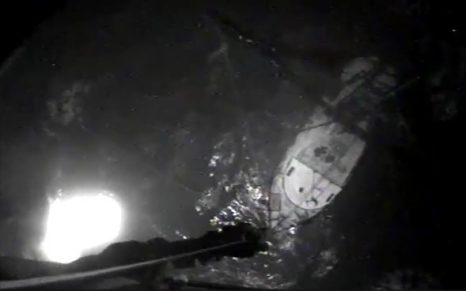
Coast Guard rescues 3 from grounded shrimp boat near Pass Cavalo, Texas
A Coast Guard helicopter crew hoisted three men off of a disabled shrimp boat that grounded early Tuesday morning near Pass Cavalo, about 5 miles southeast of Port O’Connor. Monday at 11:21 p.m., Calhoun County Sherrif’s office called Sector Corpus Christi watchstanders and reported the F/V Scatterbrain, a 67-foot shrimp boat with three people aboard, had become disabled and was adrift and dragging anchor. Due to shallow water depth, Coast Guard boat crews were unable to reach the men. Air Station Corpus Christi helicopter crews arrived at 4:17 a.m. and hoisted hoisted them to safety. They were taken to Calhoun County Airport with no injuries. The Coast Guard is working with the owner of the boat to safely recover it and prevent environmental impacts. click here to watch video 17:21
Japan embraces Russ George’s scheme for iron fertilization
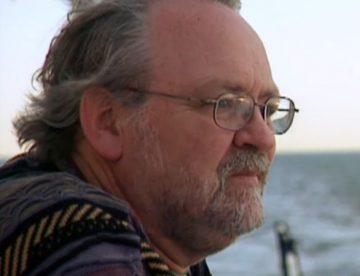 Russ George is semi-famous for dumping over 100 metric tons of iron dust, iron sulfate fertilizer and iron oxide into the sea off British Columbia, Canada in 2012. The act, he claims, spurred a plankton bloom that fed a huge surge in pink salmon returns the following year and in chum salmon returns in 2016 – the difference in years reflecting the different lifecycles of the species. The plan sought to replicate the effect of the eruption of Kasatochi volcano in the Aleutians, which also deposited iron-rich dust and spurred a plankton bloom. Sequestering carbon – in the hard shells of diatoms that sink to the ocean floor – was a supposed secondary benefit. However, George’s experiment, undertaken with the backing of a Native American (First Nations) group, the Haida in the village of Old Masset, and carried out as a corporate activity of the “Haida Salmon Restoration Corporation,” was deemed a rogue experiment. click here to read the story 15:36 click here to read “Japanese Salmon Fisheries In Historic Collapse Help On The Way” 15:40
Russ George is semi-famous for dumping over 100 metric tons of iron dust, iron sulfate fertilizer and iron oxide into the sea off British Columbia, Canada in 2012. The act, he claims, spurred a plankton bloom that fed a huge surge in pink salmon returns the following year and in chum salmon returns in 2016 – the difference in years reflecting the different lifecycles of the species. The plan sought to replicate the effect of the eruption of Kasatochi volcano in the Aleutians, which also deposited iron-rich dust and spurred a plankton bloom. Sequestering carbon – in the hard shells of diatoms that sink to the ocean floor – was a supposed secondary benefit. However, George’s experiment, undertaken with the backing of a Native American (First Nations) group, the Haida in the village of Old Masset, and carried out as a corporate activity of the “Haida Salmon Restoration Corporation,” was deemed a rogue experiment. click here to read the story 15:36 click here to read “Japanese Salmon Fisheries In Historic Collapse Help On The Way” 15:40
Seafood Harvesters of America oppose bill that re-examines fisheries allocations
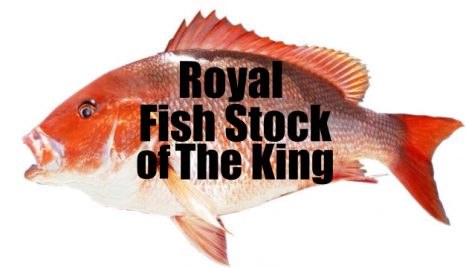 A new bill focused on recreational fishing has drawn strong opposition from the nation’s largest organization of commercial seafood harvesters. The Seafood Harvesters of America (Catch Share Club) claims that the bill would hamstring federal regional fishery councils’ ability to manage the fishery sector and most species, while also limiting the ability to innovate new solutions to overfishing. The bill was submitted April 6 and would change the Magnuson-Stevens Fishery Conservation and Management Act. It allows for alternative management of waters for recreational fishing, re-examines fisheries allocations and establishes exemptions to certain catch limits. The bill would require regular review of catch allocations, which recreational fishermen say have historically benefited commercial fishermen. The harvesters group released a statement late Sunday voicing concern about the Modernizing Recreational Fisheries Management Act of 2017. The bill was introduced by U.S. Reps. Garret Graves, R-La.; Gene Green, D-Texas; Daniel Webster, R-Fla.; and Rob Wittman, R-Va. click here to read the story 14:07
A new bill focused on recreational fishing has drawn strong opposition from the nation’s largest organization of commercial seafood harvesters. The Seafood Harvesters of America (Catch Share Club) claims that the bill would hamstring federal regional fishery councils’ ability to manage the fishery sector and most species, while also limiting the ability to innovate new solutions to overfishing. The bill was submitted April 6 and would change the Magnuson-Stevens Fishery Conservation and Management Act. It allows for alternative management of waters for recreational fishing, re-examines fisheries allocations and establishes exemptions to certain catch limits. The bill would require regular review of catch allocations, which recreational fishermen say have historically benefited commercial fishermen. The harvesters group released a statement late Sunday voicing concern about the Modernizing Recreational Fisheries Management Act of 2017. The bill was introduced by U.S. Reps. Garret Graves, R-La.; Gene Green, D-Texas; Daniel Webster, R-Fla.; and Rob Wittman, R-Va. click here to read the story 14:07
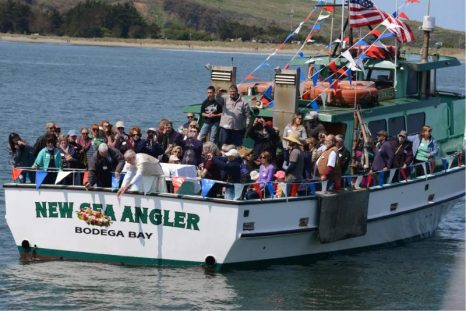
Bodega Bay Fisherman’s Festival celebrates its working waterfront with Blessing of the Fleet
In a tradition that stretches back nearly 60 years, local fishermen gathered their fleet off Doran Spit on Sunday to receive a blessing for bountiful catches and safe returns. Skippers, aboard boats sporting colorful maritime decorations in their rigging, tuned their VHF radios to channel 09 and cranked up the volume so their crews, friends and family aboard could hear local clergy pray for them in the annual blessing of the fleet. “We praise you for the vast abundance of the sea,” said Pastor Neal Miller of the Fisherman’s Chapel in prayer. Miller was joined aboard the New Sea Angler by Pastor Jerry Lites of Bodega Bay Church and Father Gary Moore of the Diocese of Santa Rosa. After a few lean years, the Bodega Bay fleet is praying the Lord will manifest that abundance onto their hooks and into their crab pots. The blessing of the fleet, which has taken place every year since 1958, is appreciated by both captains and crew. 14 great images, click here to read the story 13:12
U.S. imposes new seafood import rules – DFO says it’s too soon to know what fisheries in Canada will be affected
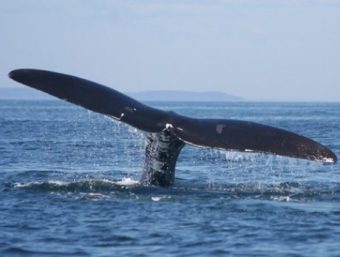 The United States is now requiring proof that its seafood imports are harvested in a way that minimizes harm to marine mammals like whales — and that has concerned some members of Atlantic Canada’s fishing industry. As of Monday, countries had to submit a list of fisheries measures in place to limit by-catch and gear entanglements with whales, turtles, porpoises and seals. The U.S. wants standards comparable to those imposed on American fisheries.,, “It could be a big problem,” said Bernie Berry, president of the Coldwater Lobster Association, a group representing fishermen in Canada’s most lucrative lobster fishing areas in southwest Nova Scotia.,, “It could be a big problem,” said Bernie Berry, president of the Coldwater Lobster Association, a group representing fishermen in Canada’s most lucrative lobster fishing areas in southwest Nova Scotia. click here to read the story 12:07
The United States is now requiring proof that its seafood imports are harvested in a way that minimizes harm to marine mammals like whales — and that has concerned some members of Atlantic Canada’s fishing industry. As of Monday, countries had to submit a list of fisheries measures in place to limit by-catch and gear entanglements with whales, turtles, porpoises and seals. The U.S. wants standards comparable to those imposed on American fisheries.,, “It could be a big problem,” said Bernie Berry, president of the Coldwater Lobster Association, a group representing fishermen in Canada’s most lucrative lobster fishing areas in southwest Nova Scotia.,, “It could be a big problem,” said Bernie Berry, president of the Coldwater Lobster Association, a group representing fishermen in Canada’s most lucrative lobster fishing areas in southwest Nova Scotia. click here to read the story 12:07
DFO files police complaint over shrimp fishermen who stormed St. John’s headquarters
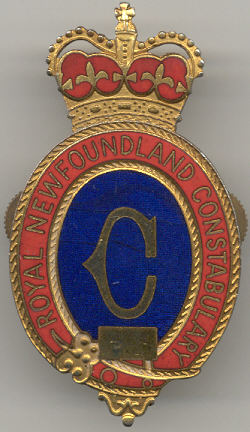 The Department of Fisheries and Oceans (DFO) has filed a police complaint about a shrimp protest that took a drastic turn Friday when fishermen broke a door and stormed the headquarters in St. John’s. Two doors were damaged Friday, as about 50 protesters gained access to the federal building on White Hills Road. RNC Const. Steve Curnew said a member of the general investigation unit is looking into the matter. There were also reports of DFO officials being intimidated, as fishermen walked the halls calling out the names of specific individuals in the building. click here to read the story 11:28
The Department of Fisheries and Oceans (DFO) has filed a police complaint about a shrimp protest that took a drastic turn Friday when fishermen broke a door and stormed the headquarters in St. John’s. Two doors were damaged Friday, as about 50 protesters gained access to the federal building on White Hills Road. RNC Const. Steve Curnew said a member of the general investigation unit is looking into the matter. There were also reports of DFO officials being intimidated, as fishermen walked the halls calling out the names of specific individuals in the building. click here to read the story 11:28
Two inshore shrimpers busted for fishing during closed season, one with running lights off
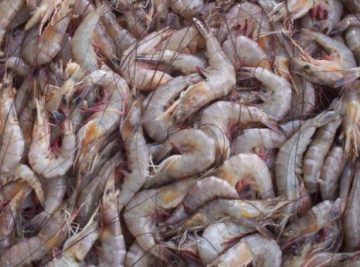 Due to the unseasonably warm winter and spring, brown shrimp have grown quickly in Louisiana’s marshes, and some shrimpers have been trying to get a jump on their competition. Louisiana Department of Wildlife and Fisheries agents say they busted two shrimpers Saturday who were using skimmer nets in English Bay near Buras even though the inshore season won’t open for several more weeks. According to the department, the men were pulling their nets at 10:30 p.m. without the boat’s navigation lights on. Agents cited John Berthelot, 37, of Covington, and Juan Cruz, 38, of Marrero, for using skimmers during a closed season. Agents also cited Berthelot for improper navigation lights. click here to read the story 10:08
Due to the unseasonably warm winter and spring, brown shrimp have grown quickly in Louisiana’s marshes, and some shrimpers have been trying to get a jump on their competition. Louisiana Department of Wildlife and Fisheries agents say they busted two shrimpers Saturday who were using skimmer nets in English Bay near Buras even though the inshore season won’t open for several more weeks. According to the department, the men were pulling their nets at 10:30 p.m. without the boat’s navigation lights on. Agents cited John Berthelot, 37, of Covington, and Juan Cruz, 38, of Marrero, for using skimmers during a closed season. Agents also cited Berthelot for improper navigation lights. click here to read the story 10:08
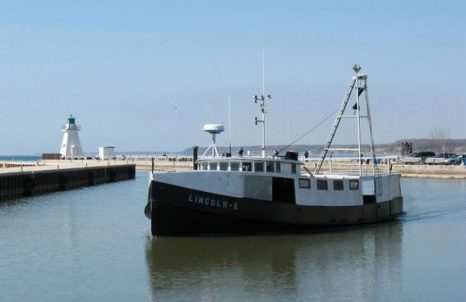
TAC increase brings optimistic times for Lake Erie commercial fishery
The Canada-U.S. committee that manages the fishery likes the recent research data it has seen. As a result, the Lake Erie Committee has increased the amount of yellow perch and walleye commercial fishermen are allowed to catch this year. The total allowable catch for yellow perch has been pegged at 10.4 million pounds. This is a 13 percent increase over 2016. The numbers are even better for walleye, which is commonly served in lakeshore restaurants as pickerel. As a top predator in the lake, walleye are managed as individuals and not by weight. The Lake Erie Committee will allow 5.924 million walleye to be harvested this year. That’s a 20 percent increase over 2016. click here to read the story 09:38
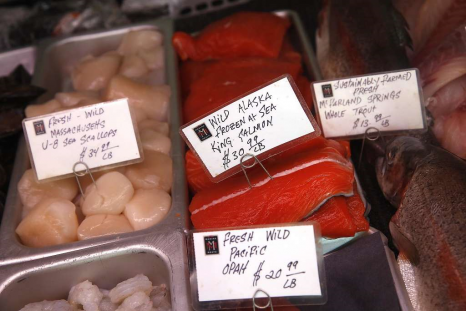
California likely to shorten chinook salmon season
With chinook salmon at its lowest population in years, West Coast fishery managers are considering a proposal to strictly limit the commercial season and to delay its start around the San Francisco Bay from its usual May date to August. A final decision will be made on Tuesday. “You’re probably going to find it only in your upscale grocery stores and upscale restaurants, and it’s not going to be always available. It’s probably not going to be cheap,” said Dave Bitts, a Eureka fisherman and adviser to the Pacific Fishery Management Council, which manages fisheries in the federal waters off California, Oregon and Washington. Click here to read the story 08:55
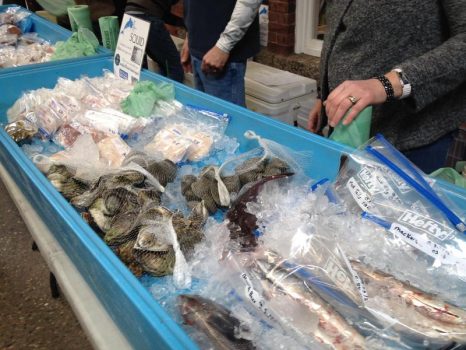
RI Fishing Industry Looks To Grow Local Demand Amid Changing Regulations
Fishing has long been a staple industry in Rhode Island. Over the last century ever more local seafood is shipped across the country and the globe. Now, as fishermen are working to grow the local market, in the face of changing regulations and technology.The Pawtucket indoor farmer’s market is bustling on a recent Saturday morning. Among the rows of vendors selling veggies, eggs, and homemade soaps is the Local Catch – purveyor of locally caught seafood. Laid out over shaved ice are fish like dabs, a type of flounder, John Dory, and Monkfish. It’s all readily available in local waters. Yet Rhode Islanders might be hard-pressed to find them in a neighborhood grocery store. “Before we started the Local Catch I fished for about 35 years with my own boat,” said Local Catch owner Richard Cook. “We went to a couple fish markets at Stop and Shops and stuff like that and nobody had any local fish it was all from Alaska and China and all over the place.” click here to listen to audio, read the story 08:23
Coast Guard investigation into the death of commercial fisherman Walter Krupinski continues
 The $300 in fines assessed to the captain of a 60-foot yacht that collided with Walter Krupinski’s 23-foot boat doesn’t sit well with Krupinski’s widow Peggy. “These $100 fines just don’t cut it with me. My husband died,” Krupinski said. “Hopefully the Coast Guard or the Justice Department can do something more.” Cooper Bacon, 76, of New Jersey was found guilty March 27 of violating three Coast Guard navigation rules resulting in the Sept. 22, 2015, death of Krupinski, 81. Bacon is licensed as a captain by the U.S. Coast Guard. Each of the violations — improper navigation or failure to have a lookout, failure to take action to avoid a collision and improper overtaking of another vessel — carries a maximum $100 fine. Dawn Hallen, chief of the U.S. Coast Guard Investigations Division, attended Bacon’s four-day trial. She said her division’s investigation into the collision is not done yet and Bacon has refused to speak with Coast Guard officials, which has made the process lengthy and more difficult. click here to read the story 07:45
The $300 in fines assessed to the captain of a 60-foot yacht that collided with Walter Krupinski’s 23-foot boat doesn’t sit well with Krupinski’s widow Peggy. “These $100 fines just don’t cut it with me. My husband died,” Krupinski said. “Hopefully the Coast Guard or the Justice Department can do something more.” Cooper Bacon, 76, of New Jersey was found guilty March 27 of violating three Coast Guard navigation rules resulting in the Sept. 22, 2015, death of Krupinski, 81. Bacon is licensed as a captain by the U.S. Coast Guard. Each of the violations — improper navigation or failure to have a lookout, failure to take action to avoid a collision and improper overtaking of another vessel — carries a maximum $100 fine. Dawn Hallen, chief of the U.S. Coast Guard Investigations Division, attended Bacon’s four-day trial. She said her division’s investigation into the collision is not done yet and Bacon has refused to speak with Coast Guard officials, which has made the process lengthy and more difficult. click here to read the story 07:45


































